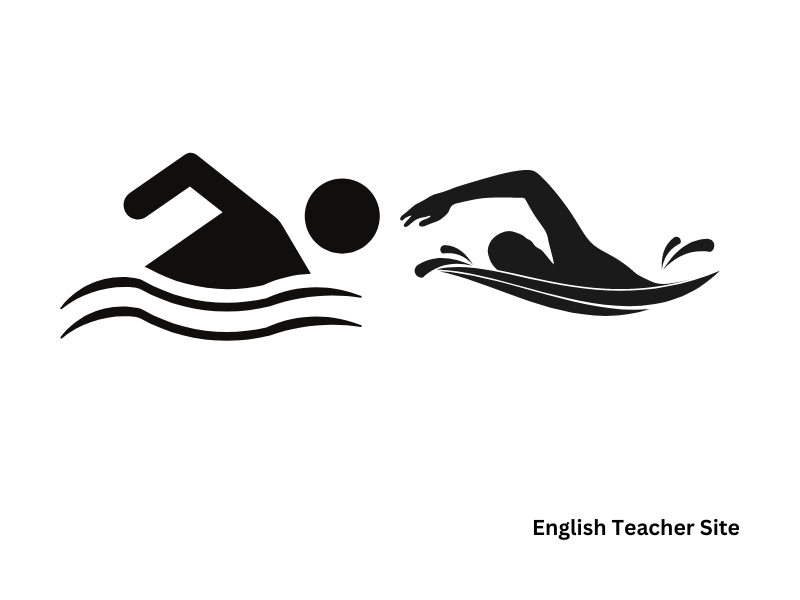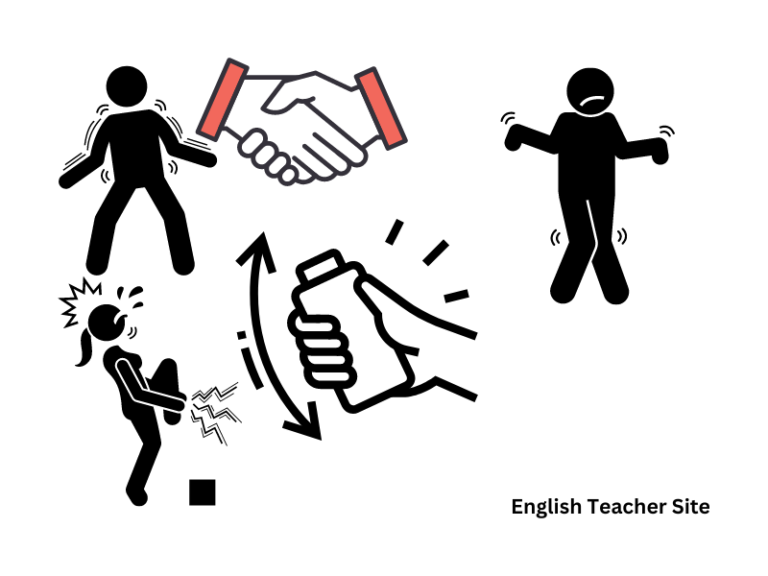Swam or Swum: Understanding the Correct Past Tense of “Swim”

- “Swam” is the simple past tense form of “swim.”
- “Swum” is the past participle form, used in perfect tense constructions.
- Understanding verb forms is crucial for clear communication in English.
Grasping the correct usage of “swam” and “swum” is essential to ensuring clarity in both written and spoken English. While “swam” is the simple past tense of “swim,” indicating an action completed in the past, “swum” is the past participle form, used in conjunction with auxiliary verbs to form perfect tenses. This distinction holds true not only for “swim” but for many other irregular verbs in the English language, highlighting the importance of familiarizing oneself with these unique forms.
Verb forms of “swim”
To properly use the word “swim” in different tenses, one must understand its various forms. “Swim” is an irregular verb, which means it does not follow the regular pattern of adding “-ed” to create the past tense and past participle forms.
Present Tense:
- Base Form: swim
- Example: They swim in the lake every morning.
Past Tense:
- Simple Past: swam
- Example: She swam across the channel last summer.
Past Participle:
- Past Participle: swum
- Example: He has swum in four competitive meets this month.
Present participle and gerund form:
- Gerund / Present Participle: swimming
- Example: Swimming is his favorite sport.
To offer a structured overview, here are two tables summarizing the verb forms of “swim”:
Table 1: “Swim” in the Indicative Mood
| Tense | Example |
|---|---|
| Simple Present | I/You/We/They swim, He/She/It swims |
| Simple Past | I/You/We/They/He/She/It swam |
| Present Perfect | I/You/We/They/He/She/It have/has swum |
| Past Perfect | I/You/We/They/He/She/It had swum |
| Future | I/You/We/They/He/She/It will swim |
| Future Perfect | I/You/We/They/He/She/It will have swum |
Table 2: “Swim” in the Continuous/Progressive Forms
| Tense | Example |
|---|---|
| Present Continuous | I am swimming |
| Past Continuous | I was swimming |
| Future Continuous | I will be swimming |
| Present Perfect Cont. | I have been swimming |
| Past Perfect Continuous | I had been swimming |
| Future Perfect Cont. | I will have been swimming |
When constructing sentences, consider the context to determine which verb form of “swim” is most appropriate. Bullet points provide a concise way to remember these forms:
- Use swim for the present tense and subjects like I, you, we, and they.
- Use swam as the simple past tense when the action has already occurred.
- Use swum only when accompanied by “have,” “has,” or “had.”
Swam or Swum – What’s the past tense of swim?
Swim is an irregular verb in the English language, which often leads to confusion concerning its correct past tense forms. When determining whether to use swam or swum, one must consider the context of the sentence, as both serve as past forms but in different grammatical structures.
Swam is the simple past tense form of swim. It is used to describe an action that was completed in the past. For example:
- She swam across the lake yesterday.
Swum, on the other hand, is the past participle of swim and is always used with an auxiliary verb such as has, have, or had. It indicates an action that has been completed, often in relation to another point in time. Examples include:
- They have swum in the ocean every summer.
- He had swum the entire length of the pool before breakfast.
To summarize, the distinction between swam and swum is rooted in their use with auxiliary verbs and the respective tense they convey. The following tables provide a clear comparison:
| Simple Past Tense | Use |
|---|---|
| Swam | – She swam across the bay last weekend without any assistance. |
| Past Participle | Use |
|---|---|
| Swum | – After the marathon, he realized he had swum farther than ever before. |
In essence, the choice between these two forms depends on whether the past action is standalone or connected to another action or time.
Swim, Swam, Swum: Conjugating an Irregular Verb
“Swim” is an irregular verb where its conjugation defies the regular -ed ending:
- Infinitive: to swim
- Simple Past: swam
- Past Participle: swum
Used in different contexts, these forms associate with various auxiliary verbs to construct tenses beyond the simple past: “has swum” (present perfect), “had swum” (past perfect), and “will have swum” (future perfect).
Comparative Analysis of Regular and Irregular Verbs
Regular verbs add -ed to form the past simple and past participle. Contrastingly, irregular verbs like “go,” “come,” “see,” and “swim” have unique forms.
| Regular Verb | Irregular Verb | |
|---|---|---|
| Base Form | walk | go |
| Simple Past | walked | went |
| Past Participle | walked | gone |
Tackling Common Errors and Misconceptions
Common errors arise when learners treat irregular verbs as regular ones. For instance, “swimmed” is incorrect for the past tense of “swim.” The correct form is “swam” for simple past and “swum” for the past participle.
- Incorrect: After the lesson, they have swimmed one mile.
- Correct: After the lesson, they have swum one mile.
Examples of swim in the present simple tense
When discussing the present simple tense of the verb “swim,” it’s crucial to understand that this form is used to express habits, general truths, repeated actions, and unchanging situations. The base form “swim” is employed without any additional endings for the subjects “I,” “you,” “we,” and “they.” However, when paired with the third person singular subjects – “he,” “she,” “it” – an ‘-s’ is added, becoming “swims.” The present simple tense may seem straightforward, but it is important to see it used in context.
Below are two tables which present examples of “swim” in present simple tense sentences, followed by subject pronouns and proper nouns:
Table 1: Present Simple Tense with Subject Pronouns
| Subject Pronoun | Sentence Example |
|---|---|
| I | I swim at the local pool every day. |
| You | You swim faster than I do. |
| He/She/It | He swims in the lake every morning. |
| We | We swim during our vacation. |
| They | They usually swim before breakfast. |
Table 2: Present Simple Tense with Names
| Name | Sentence Example |
|---|---|
| Alice | Alice swims laps to stay in shape. |
| Bob | Bob swims to compete in triathlons. |
| Charlotte & Dan | They swim together on weekends. |
In addition to tables, utilising bullet points can provide a clear list of habits or actions related to swimming in the present simple tense:
- She usually swims in the morning.
- He never swims after eating.
- They often swim to relax.
- I always swim in competitions with confidence.
Examples of the past tense swam in sentences
The past tense of “swim” is “swam,” and it’s used to describe an action that was completed in the past. Below are several instances where “swam” is employed correctly in a sentence.
Simple Past:
- He swam in the lake every morning last summer.
- They swam across the channel despite the cold weather.
Past Continuous:
- She was tired because she had been swimming for hours.
In sentences where a single, completed action in the past is described, “swam” is the appropriate choice.
| Subject | Verb | Completion |
|---|---|---|
| I | swam | yesterday. |
| You | swam | last week. |
| He/She | swam | last night. |
When forming compound tenses or when the action has relevance to the present moment, “swum” should be used with an auxiliary verb, as in “has swum,” “have swum,” or “had swum.”
Past Perfect:
- Before the award ceremony, the athlete had swum three races.
Consider the usage in various contexts with the help of a list for clarity:
- Narrative: Last year, she swam with dolphins during her vacation in Hawaii.
- Report: According to the news, the search team swam through the flooded caverns for hours.
- Recollection: They fondly remembered how they swam in the calm sea at dusk.
The Past Participle ‘Swum’ Used in Sentences
For instance:
- He has swum every morning this summer.
- She had swum farther than ever before when the race finished.
Here are a couple of tables illustrating the usage of the past participle “swum”:
Table 1: ‘Swum’ following ‘has’ or ‘have’
| Subject | Auxiliary Verb | Past Participle |
|---|---|---|
| I | have | swum |
| You | have | swum |
| He/She | has | swum |
| We | have | swum |
| They | have | swum |
Table 2: ‘Swum’ in perfect tenses
| Tense | Example Sentence |
|---|---|
| Present Perfect | They have swum in the Arctic. |
| Past Perfect | She had swum before sunrise. |
| Future Perfect | They will have swum 10 miles by noon. |
In perfect tense constructions, “swum” serves to denote completion:
- They have swum in many oceans.
- By the time we arrived, the team had already swum.
When emphasizing repeated or habitual actions, “swum” illustrates this in concert with “have”:
- They have swum at that beach every summer since childhood.
Bullet points showing correct and incorrect usage:
- Correct: After the marathon, it was clear they had swum their best.
- Incorrect: He swum in the lake. (Should be “He swam in the lake.”)
As these examples convey, the word “swum” is the component that completes the thought, suggesting a finished action when paired with the correct auxiliaries.
Phrases with “Swim”
When discussing the English language, the verb “swim” forms the core of various expressions and idioms that enrich the lexicon. These phrases often encapsulate more abstract or figurative meanings beyond the literal act of swimming.
Here are some common idioms and expressions involving the word “swim”:
- Go swim with the fishes: Often used metaphorically to suggest that someone will end up in a dire situation.
- In the swim: To be involved in the most active, successful, or fashionable circles or activities.
- Swim against the tide: To go against the prevailing opinion or trend.
To further illustrate, consider these phrases in context:
| Phrase | Usage in a Sentence |
|---|---|
| Swim with the fishes | “He’s not around anymore, he’s gone to swim with the fishes.” |
| In the swim | “With her new promotion, she’s really in the swim at the company now.” |
| Swim against the tide | “Despite skepticism, they chose to swim against the tide and succeeded.” |
Expressions with “swim” can also take a literal form, often used in everyday conversations:
- Swim laps: Performing repeated lengths of a pool.
- Take a swim: To engage in swimming for leisure or exercise.
- Sink or swim: To fail or succeed by one’s own efforts.
See how these are typically used:
| Phrase | Usage in a Sentence |
|---|---|
| Swim laps | “Every morning, she swims laps to keep fit.” |
| Take a swim | “It’s a hot day; let’s take a swim in the lake.” |
| Sink or swim | “Once you start college, it’s really a sink or swim situation.” |
Origin of “Swim”
The English language is rich with history, and the word “swim” is no exception. This verb, denoting the action of moving through water by using the limbs, has its roots in Old English. “Swim” comes from the Old English “swimman,” which has cognates in other Germanic languages, such as German “schwimmen” and Dutch “zwemmen.”
The evolution of the word reflects the history of the English language itself, which has been shaped by various linguistic influences over the centuries. Here is a brief overview of the etymology of “swim”:
| Period | Language | Word |
|---|---|---|
| Old English | Ænglisc | swimman |
| Middle English | English | swimmen |
During the Middle English period, the word underwent a slight modification to “swimmen,” as evidenced in literature from that era. It’s interesting to note that while the spelling and pronunciation have changed over time, the fundamental meaning of the word has remained consistent.
To understand how “swim” is used grammatically, consider the following points:
- “Swim” is an irregular verb.
- The past tense of “swim” is “swam.”
- The past participle for some verbs like “swim” does not follow a simple pattern and is formed as “swum.”
In terms of linguistic classification, “swim” falls into the category of strong verbs. Strong verbs are characterized by their method of conjugation, which historically involved changes in vowel length or quality. This is evident in the transition from “swim” to “swam” to “swum.”
| Tense | Form |
|---|---|
| Present | swim |
| Past | swam |
| Past Participle | swum |
Source
1. Harper, Douglas. “Etymology of swim.” Online Etymology Dictionary, https://www.etymonline.com/word/swim.
2. “Swim.” TheFreeDictionary.com. 2023. https://idioms.thefreedictionary.com/swim
My name is Khamis Maiouf. I am the creator of the English Teacher Site, dedicated to providing valuable resources and insights for students around the world. With a passion for education and a commitment to helping students enhance their skills, I aim to make English teaching more effective and enjoyable for both educators and students.






